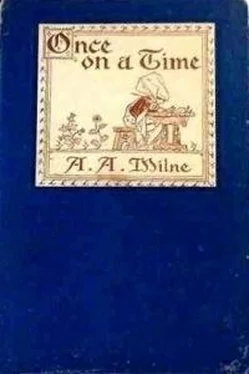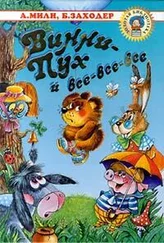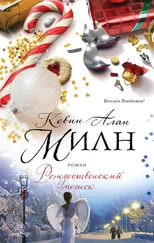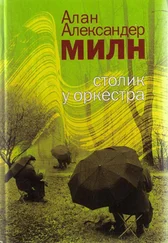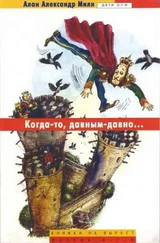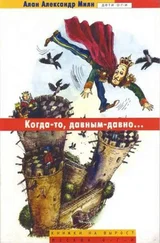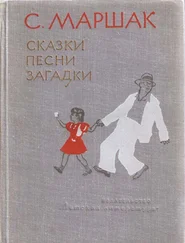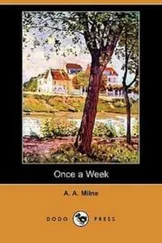"What does your Majesty propose to do?" he asked shortly.
"I propose to do the following. Upon you rests the chief burden."
The Chancellor did not look surprised.
"It will be your part to break the news as gently as possible to my people. You will begin by saying that I am busy with a great enchanter who has called to see me, and that therefore I am unable to show myself to my people this morning. Later on in the day you will announce that the enchanter has shown me how to defeat the wicked Euralians; you will dwell upon the fact that this victory, as assured by him, involves an overwhelming sacrifice on my part, but that for the good of my people I am willing to endure it. Then you will solemnly announce that the sacrifice I am making, have indeed already made, is nothing less than― What are all those fools cheering for out there?" A mighty roar of laughter rose to the sky. "Here, what's it all about? Just go and look."
The Chancellor went to the door of the tent—and saw.
He came back to the King, striving to speak casually.
"Just a humorous emblem that the Euralians have raised over their camp," he said. "It wouldn't amuse your Majesty."
"I am hardly in a mood for joking," said the King. "Let us return to business. As I was saying, you will announce to the people that the enormous sacrifice which their King is prepared to make for them consists of— There they go again. I must really see what it is. Just pull the door back so that I may see without being seen."
"It—it really wouldn't amuse your Majesty."
"Are you implying that I have no sense of humour?" said the King sternly.
"Oh, no, sire, but there are certain jokes, jokes in the poorest of taste, that would naturally not appeal to so delicate a palate as your Majesty's. This—er—strikes me as one of them."
"Of that I am the best judge," said the King coldly. "Open the door at once."
The Chancellor opened the door; and there before the King's eyes, flaunting themselves in the breeze beneath the Royal Standard of Euralia, waved his own beloved whiskers.
The King of Barodia was not a lovable man, and his daughters were decidedly plain, but there are moments when one cannot help admiring him. This was one of them.
"You may shut the door," he said to the Chancellor. "The instructions which I gave to you just now," he went on in the same cold voice, "are cancelled. Let me think for a moment." He began to walk up and down his apartment. "You may think, too," he added kindly. "If you have anything not entirely senseless to suggest, you may suggest it."
He continued his pacings. Suddenly he came to a dead stop. He was standing in front of a large mirror. For the first time since he was seventeen he had seen his face without whiskers. His eyes still fixed on his reflection, he beckoned the Chancellor to approach.
"Come here," he said, clutching him by the arm. "You see that?" He pointed to the reflection. "That is what I look like? The mirror hasn't made a mistake of any kind? That is really and truly what I look like?"
"Yes, sire."
For a little while the King continued to gaze fascinated at his reflection, and then he turned on the Chancellor.
"You coward!" he said. "You weak–kneed, jelly–souled, paper–livered imitation of a man! You cringe to a King who looks like that! Why, you ought to kick me."
The Chancellor remembered that he had one kick owing to him. He drew back his foot, and then a thought occurred to him.
"You might kick me back," he pointed out.
"I certainly should," said the King.
The Chancellor hesitated a moment.
"I think," he said, "that these private quarrels in the face of the common enemy are to be deplored."
The King looked at him, gave a short laugh, and went on walking up and down.
"That face again," he sighed as he came opposite the mirror. "No, it's no good; I can never be King like this. I shall abdicate."
"But, your Majesty, this is a very terrible decision. Could not your Majesty live in retirement until your Majesty had grown your Majesty's whiskers again? Surely this is―"
The King came to a stand opposite him and looked down on him gravely.
"Chancellor," he said, "those whiskers which you have just seen fluttering in the breeze have been for more than forty years my curse. For more than forty years I have had to live up to those whiskers, behaving, not as my temperament, which is a kindly, indeed a genial one, bade me to behave, but as those whiskers insisted I should behave. Arrogant, hasty–tempered, over–bearing—these are the qualities which have been demanded of the owner of those whiskers. I played a part which was difficult at first; of late, it has, alas! been more easy. Yet it has never been my true nature that you have seen."
He paused and looked silently at himself in the glass.
"But, your Majesty," said the Chancellor eagerly, "why choose this moment to abdicate? Think how your country will welcome this new King whom you have just revealed to me. And yet," he added regretfully, "it would not be quite the same."
The King turned round to him.
"There spoke a true Barodian," he said. "It would not be the same. Barodians have come to expect certain qualities from their rulers, and they would be lost without them. A new King might accustom them to other ways, but they are used to me, and they would not like me different. No, Chancellor, I shall abdicate. Do not wear so sad a face for me. I am looking forward to my new life with the greatest of joy."
The Chancellor was not looking sad for him; he was looking sad for himself, thinking that perhaps a new King might like changes in Chancellors equally with changes in manners or whiskers.
"But what will you do?" he asked.
"I shall be a simple subject of the new King, earning my living by my own toil."
The Chancellor raised his eyebrows at this.
"I suppose you think," said the King haughtily, "that I have not the intelligence to earn my own living."
The Chancellor with a cough remarked that the very distinguished qualities which made an excellent King did not always imply the corresponding—er—and so on.
"That shows how little you know about it. Just to give one example. I happen to know that I have in me the makings of an excellent swineherd."
"A swineherd?"
"The man who—er—herds the swine. It may surprise you to hear that, posing as a swineherd, I have conversed with another of the profession upon his own subject, without his suspecting the truth. It is just such a busy outdoor life as I should enjoy. One herds and one milks, and one milks, and—er—herds, and so it goes on day after day." A happy smile, the first the Chancellor had ever seen there, spread itself over his features. He clapped the Chancellor playfully on the back and added, "I shall simply love it."
The Chancellor was amazed. What a story for his dinner–parties when the war was over!
"How will you announce it?" he asked, and his tone struck a happy mean between the tones in which you address a monarch and a pig–minder respectively.
"That will be your duty. Now that I have shaken off the curse of those whiskers, I am no longer a proud man, but even a swineherd would not care for it to get about that he had been forcibly shaved while sleeping. That this should be the last incident recorded of me in Barodian history is unbearable. You will announce therefore that I have been slain in fair combat, though at the dead of night, by the King of Euralia, and that my whiskers fly over his royal tent as a symbol of his victory." He winked at the Chancellor and added, "It might as well get about that some one had stolen my Magic Sword that evening."
The Chancellor was speechless with admiration and approval of the plan. Like his brother of Euralia, he too was longing to get home again. The war had arisen over a personal insult to the King. If the King was no longer King, why should the war go on?
Читать дальше
